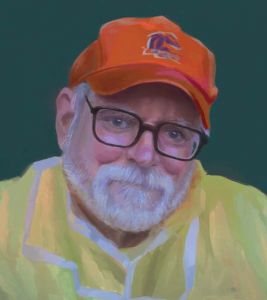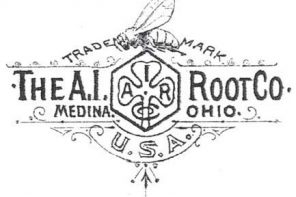By: Kim Flottum
 So, the unemployment numbers in this country have been staggeringly low for the past few months, and I am quite sure that is good for folks who not long ago were looking for a job. It is, however, a difficult time for those in the hiring mode because there are so few candidates to choose from when a position opens and it needs to be filled yesterday, because, you know, customers are waiting.
So, the unemployment numbers in this country have been staggeringly low for the past few months, and I am quite sure that is good for folks who not long ago were looking for a job. It is, however, a difficult time for those in the hiring mode because there are so few candidates to choose from when a position opens and it needs to be filled yesterday, because, you know, customers are waiting.
I’ve had jobs where I had to hire people where both situations came to be. Too many people looking for too few jobs, and too many jobs looking for too few people. The first has always been a better position to be in when hiring somebody because you can be picky, or, at least pickier.
I once had to hire two summer interns to help with field research on ornamental and vegetable insect control for the homeowner. The two positions were basically designed to manage about five acres of various ornamental crops, mostly annuals like zinnias, marigolds and the like, but also vegetables to be eaten, and perennial ornamentals like crabapple trees and roses.
The jobs included things like preparing the fields (rototillers), weed control (hoes and rakes and shovels), spray applications (tractor and sprayer basics), mowing and data collection (measuring before and after insect populations). Qualifications included, well, you can about guess what you had to be able to do to be able to do the job. Certainly there was always some OJT because data collection isn’t in most folks experience book, so that was a given, mostly. But rototillers, tractors, hoes…that year it had to be second nature to even be considered.
One student had a farm background and pretty much knew everything needed. The other had a yard and garden background so was at least familiar with the concepts of what was needed. And both were in the AG School, not Liberal Arts.
In the good years, with more kids than jobs, you had applicants with backgrounds like this applying by the dozen because they needed all the work they could get to pay college expenses. I got to where I was because I was one of those looking to pay for college costs. Those were the easy years. In fact, I usually learned more from them than I was able to teach because they had the experience of years on a farm.
It was the bad years, when all the good kids already had jobs that you went looking for bodies, any bodies. No experience was the norm, and not even a thought of experience was more common than not. They weren’t dumb…they were urban, they were poets, they were accountants, they didn’t have dirty hands. Mowing the lawn was about as agricultural as they got, and even then it was usually a riding mower rather than a push mower. These kids just needed any kind of work that could give them a decent recommendation next time. I was always a second or last choice.
Those were challenging summers, but we managed. And by the time school started again most of them had dirty hands, a good tan and a new appreciation of where food came from and how much work it took to get it on a table. For me, that was the best thing they could learn. And, it turns out, over the years I’ve managed to touch base with some of them (now lawyers, accountants, CEOs and Business leaders of all kinds), and for some it was the best summer job they ever had. They learned something they didn’t expect to learn that had value, and it lasted them a lifetime.
So, where’s all this going….unemployment, summer jobs, poets? Well, my boss is going to be looking for somebody to sit in my office later this year. That’s because I won’t be there, full time anyway, anymore. Really.
That’s because, after just over 33 years here it’s time to spend more time in the garden and beeyard than in an office. Don’t get me wrong. I really like this particular office because it’s the only one in the whole company that has windows on all three of its sides. Yes, it’s a triangular corner office, occupied by editors here on and off for most of the 90 some years the building has been here. It’s bright and airy and spacious enough, but for reasons unknown to the fix-it people here, the air conditioning and heat don’t work. But that, friend, is a small price to pay for natural light and not living in a cube. I have a heater and a fan, and it is heaven in here, all year ‘round.
When is all this going to happen? Well, figure before snow falls here in Northeast Ohio, but not much before – Thanksgivingish is about right I think.
Kath has a couple years to go before she hangs up her keyboard, and there are some projects that ABSOLUTELY must get done this summer that have taken way, way too long. And then, there are a bunch of projects I’d like to do, kind of part time, after I’m officially done.
Being around to help the new person has been tossed back and forth, and the boss kind of likes that idea, because there’s nobody here that knows all of the things that go on in the office. Kath knows a lot of it, but she has a full time plus job here doing what she does so won’t have tons of time to be training new people. They will have to be mostly house broken on day one.
What are they looking for? I’d like to think another me, but that’s not realistic. I came here without a lot of the skills now necessary, even critical. I had some USDA honey bee research experience, several years of farm and nursery work under my belt, and a bit of writing for Extension Bulletins from the University of Wisconsin. And I’d done some Beekeeping and museum Newsletter production and editing and article writing. Plus, I was on the Board of EAS, and was President of the Connecticut Beekeepers Association, so had several layers of experience. I did have some things going for me.
But now over 1300 magazine pages a year, several books, calendars, October Events, social media…it took me this long to get it right most of the time. Don’t get me wrong about leaving. It’s been a pleasure, even more, an honor to be able to do what I get to do every day for and with this industry and its people. I’ve said for all these years, I don’t have to go to work, I get to go to work…this job is that good.
But back to what the folks here are looking for. A beekeeping background for this is critical. OJT just doesn’t work for this because for the most part you have to know more than most of the readers, and at least be aware of industry leaders and businesses. That applies for both commercial and hobby levels of this art, science and craft. I’ll go back to that poet – a straight A, 10 year experienced journalism expert would flounder here for quite awhile before he, or she, got the basics of swarm management, varroa control or commercial honey packing figured out.
Journalism experience on some level is going to be important though. Chasing stories, making contacts and finding hidden nuggets of information is part of the deal, and then there are the four people who work here that will, to some degree answer to you. But, of course, you will answer to them as well because for most of this job they know more about what’s going on day to day than you do.
Then there’s the regular magazine stuff. Sixteen deadlines a year to start with, on time almost every time is critical for all of them. And all the regular things like renewal notices, new subscriber programs, newsstand sales business, dealing with printers and paper and costs, the post office’s rules and regulations, and subscription brokers, plus advertising in other journals, budgets for both magazines and any books published, medical and life insurance and salaries (Kath pretty much handles all the staff issues though), any travel to meetings, outside services like the pollinator garden landscapers, new equipment and such, and all the other stuff you have to purchase to do the job on a sometimes basis.
And then there’s the social media blitzkrieg that is ongoing, every day, night, weekend and in between. Facebook, Instagram, Twitter, The BUZZ, two web pages, and emails and more. The people who have sat here before me didn’t have any of this to deal with. I hope they appreciate that fact.
And, of course, you have to fill about 100 pages of one magazine every month, and 64 pages of another four times a year with…something. Finding authors, or letting authors find you is a never-ending task. We have some spectacular regulars but they are only part of the picture. Long ago, a wise old editor of a farming magazine I still read told me that it seemed to him that those who knew what they were talking about were too busy to write about it, and those who had the time to write about it too often didn’t know what they were talking about. I’ve found this to be somewhat true, and separating the wheat from the chaff, or, as we like to say here the honey from the wax is also part of the job. You have to know both so you can choose the best. It isn’t easy and sometimes you’ll get it wrong. That’s a given.
What else? The A. I. Root Company is celebrating its 150th year anniversary this year, and there is a rich heritage of beekeeping fact and lore and legacy that stands behind you when you produce something with their name on it. Though they have evolved into a very large candle manufacturing company, they still take this magazine and this department very seriously. They have a reputation to protect and to honor, and they don’t fool around with that at all.
And perhaps finally, the office I mentioned earlier is located in Medina, Ohio. That’s in Northeast Ohio, about 30 miles south and a bit west of Cleveland. It’s not terribly rural, but it’s certainly not urbanized to death. Akron is about 25 miles due east, so if there’s an urban fix you need to have once in awhile there are universities, museums and city life not far away and easy to get to and from. Close enough, in fact, that you could choose to live that lifestyle and easily make it to work. Lots of people do just that.
There are particulars, of course, not mentioned here, and for the whole shebang send me an email with Editor in the subject line and I’ll send along the official Party Line on requirements and what you’ll need for a resume if you choose to chase this further than you have already by reading this. Or, send along your resume, a cover letter and some clips to me at the same email. We offer all the regular benefits, plus you get to play with the bees across the street every once in awhile and work in the pollinator gardens out back, too.
And recall, we won’t drop you in a no man’s land without back up, reinforcements and as much help as we can offer, for awhile anyway.
So, Interested? I was when John Root offered me this job 33 years ago at an EAS Board meeting, and, even though the garden, the deck, more books and certainly the beeyard are calling, I still am. Really.









